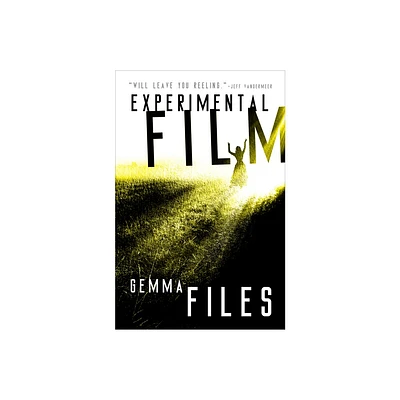Home
Decolonial Imaginaries Palestinian Experimental Film and Video: Postnational Feminist Aesthetics
Loading Inventory...
Barnes and Noble
Decolonial Imaginaries Palestinian Experimental Film and Video: Postnational Feminist Aesthetics
Current price: $64.99


Barnes and Noble
Decolonial Imaginaries Palestinian Experimental Film and Video: Postnational Feminist Aesthetics
Current price: $64.99
Loading Inventory...
Size: Hardcover
*Product Information may vary - to confirm product availability, pricing, and additional information please contact Barnes and Noble
Decolonial Imaginaries in Palestinian Experimental Film and Video
focuses on an underexamined group of female Palestinian filmmakers, highlighting their relevance for thinking through a diverse set of issues relating to decolonial aesthetics, post-nationalism and gender, non-Western ecologies, trauma and memory, diasporic experiences of space, biopolitics, feminist historiography and decolonial temporalities.
Positing that these filmmaker-artists radically counter dominant media images of Palestinians, deessentializing Palestinian identity while opening up history and the present to new potentialities and ways of imagining Palestinian futures,
argues that Palestinian experience is urgently relevant to all of us. As the works address issues of food availability and land use, environmental collapse and forced displacement, Hole explores how such films generate hope, imagine impossible possibilities and offer inspiration and wisdom when it comes to losing and rebuilding.
Addressing a fundamentally transnational and understudied area, this book will resonate with readers working in the areas of film and media studies, Palestinian cultural studies, historiography, Middle East studies and experimental film.
focuses on an underexamined group of female Palestinian filmmakers, highlighting their relevance for thinking through a diverse set of issues relating to decolonial aesthetics, post-nationalism and gender, non-Western ecologies, trauma and memory, diasporic experiences of space, biopolitics, feminist historiography and decolonial temporalities.
Positing that these filmmaker-artists radically counter dominant media images of Palestinians, deessentializing Palestinian identity while opening up history and the present to new potentialities and ways of imagining Palestinian futures,
argues that Palestinian experience is urgently relevant to all of us. As the works address issues of food availability and land use, environmental collapse and forced displacement, Hole explores how such films generate hope, imagine impossible possibilities and offer inspiration and wisdom when it comes to losing and rebuilding.
Addressing a fundamentally transnational and understudied area, this book will resonate with readers working in the areas of film and media studies, Palestinian cultural studies, historiography, Middle East studies and experimental film.



![Five American Experimental Films of the 1950s [Blu-ray]](https://prodimage.images-bn.com/pimages/0818522014975_p0_v2_s600x595.jpg)







